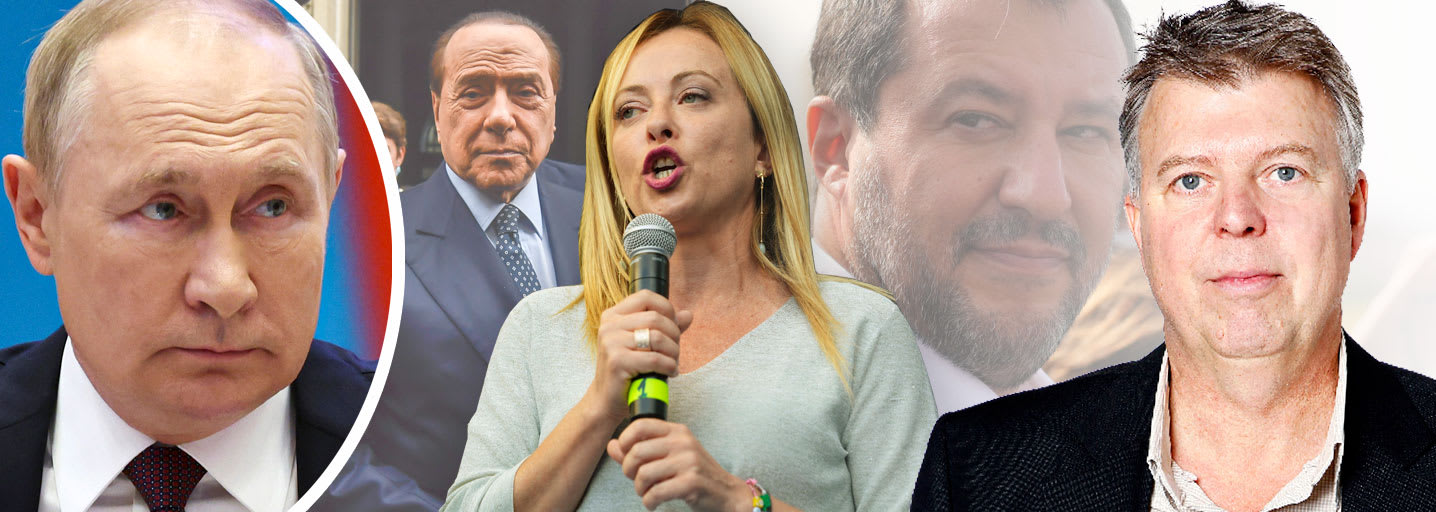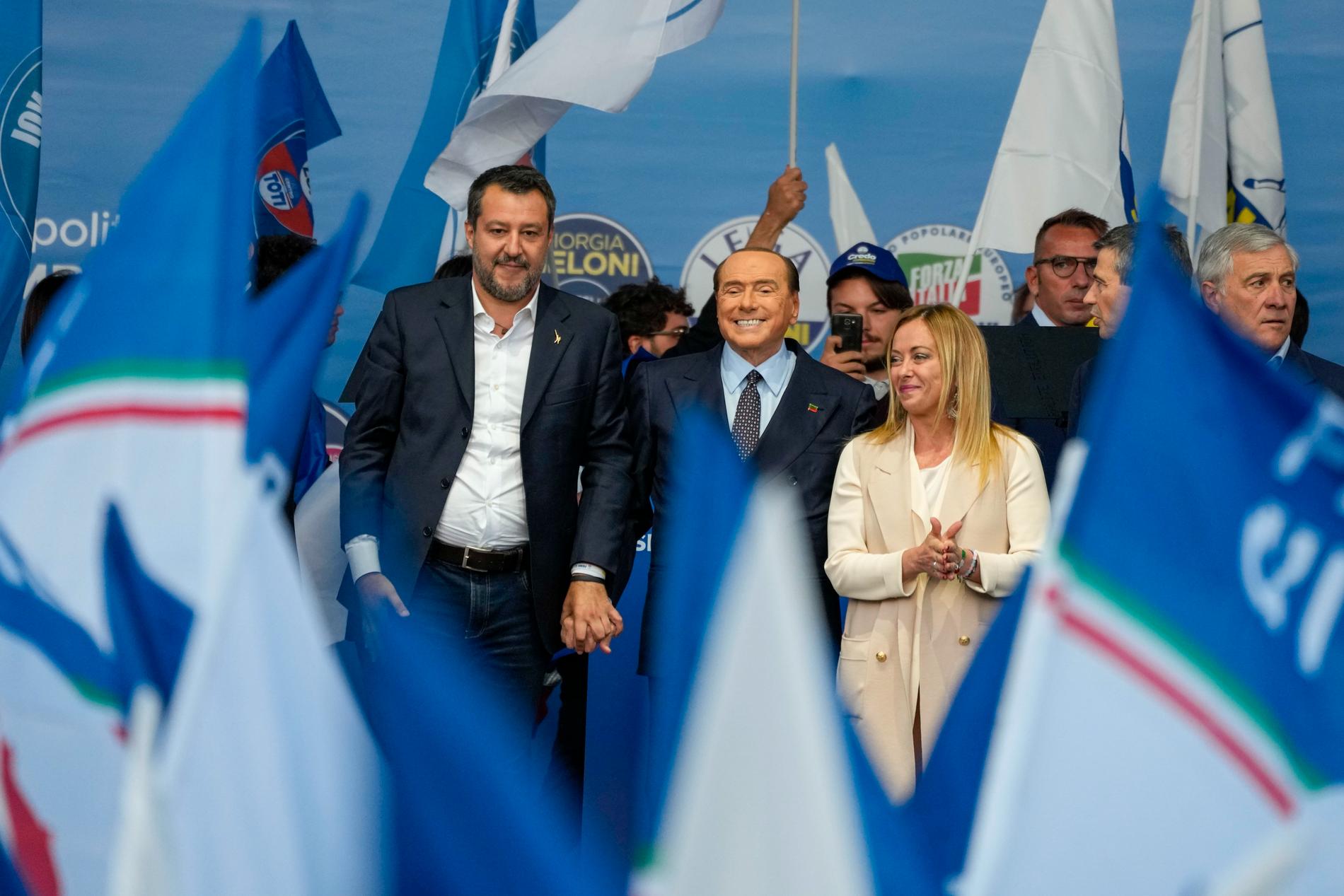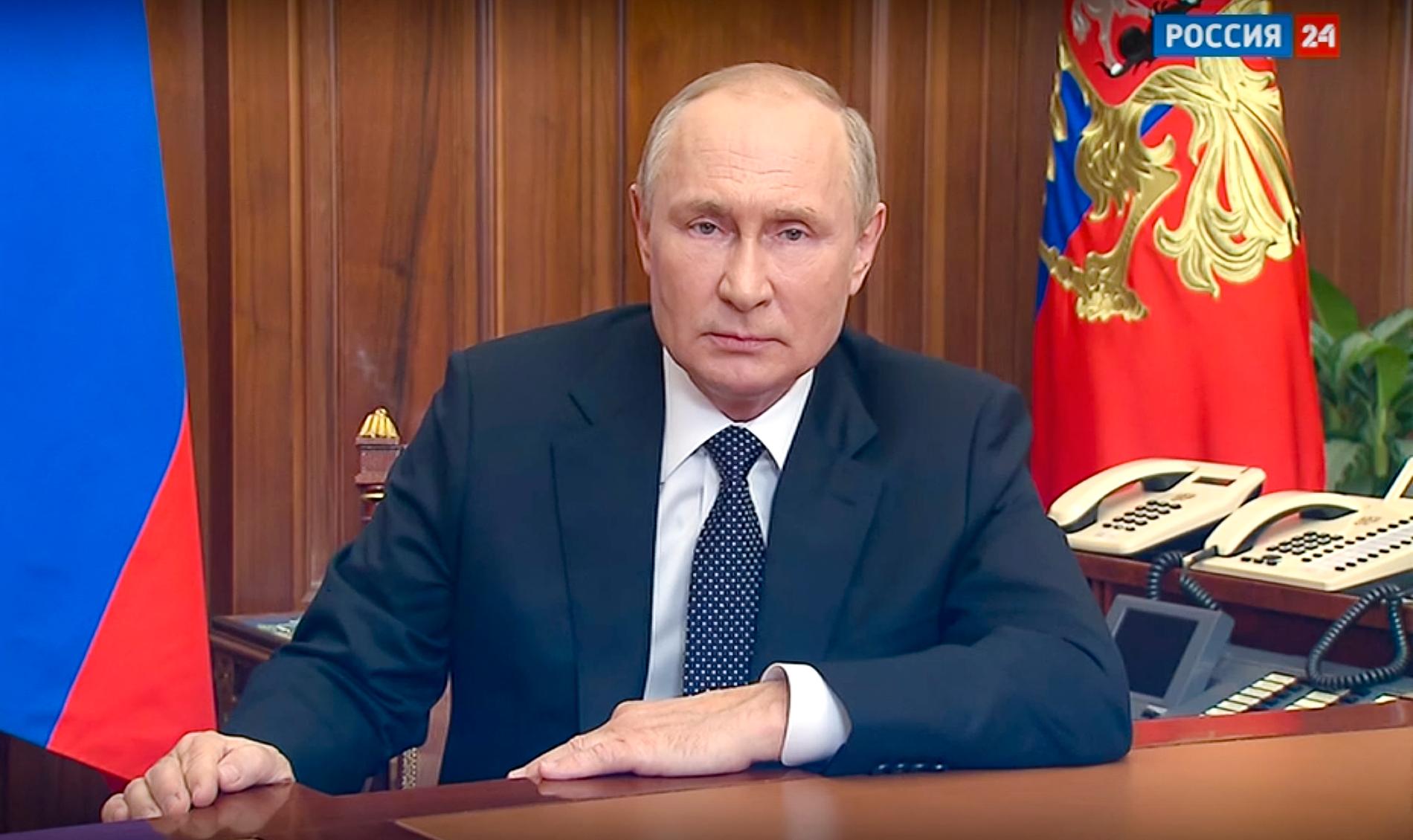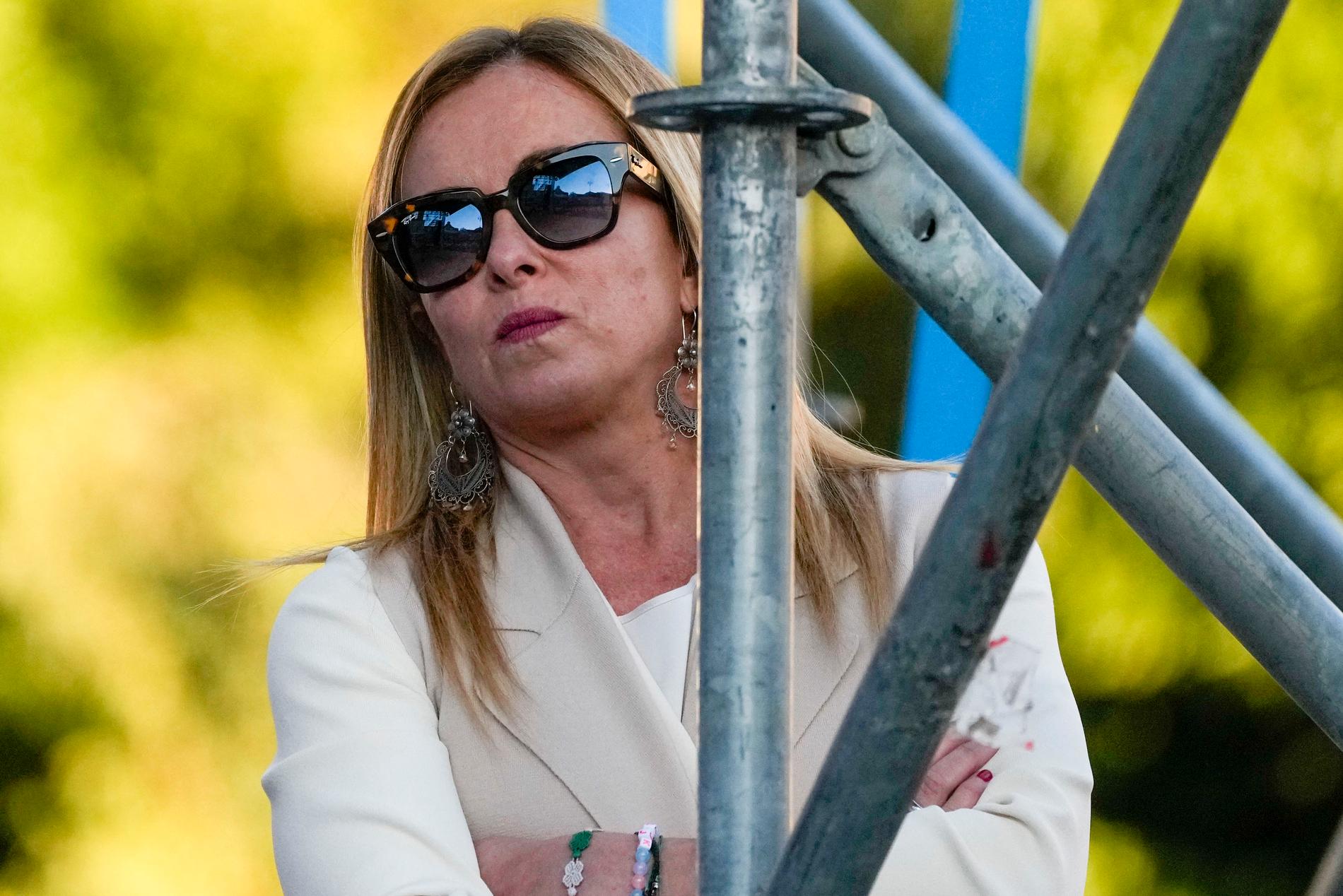
Far-right trio threatens Europe's united front against Putin
Published: Less than 2 hours ago
This is a commenting text. Analysis and positions are the writer's.
COLUMNISTS
Europe's
unity to stop Putin's aggression against Ukraine is at stake as Italy
goes to the polls on Sunday.
The result looks set to be a far-right government where two out of three
parties want to ease sanctions against Russia to mitigate the energy
crisis.
Nowadays, it is unusual to have such a strong advantage in opinion polls
so close to an election.
But if nothing exceptional happens, three right-wing parties are headed
for a safe election victory. They lead by 15 percentage points ahead of
the left.
Giorgia Meloni, leader of Italian brothers, Fratelli di Italia, with
roots in fascism, looks set to become prime minister. Seconded by Lega's
former deputy prime minister Matteo Salvini and the populist old man of
Italian politics, Silvio Berlusconi and his Forza Italia.
It is a trio that are all far to the right of the Swedish moderates. A
bit as if SD alone would take power in Sweden. Italy would have the most
conservative government since World War II.
For Europe, the consequences could be serious.
Matteo
Salvini, Silvio Berlusconi and Giorgia Meloni during an election
meeting in Rome, Thursday 22 September. Photo: Alessandra Tarantino/AP
Already
now, the united line against Russia is being tested by the energy
crisis that hit Europe due to Putin's gas war against the continent.
With Meloni and her friends at the helm, there is a great risk that the
united line will crack.
Matteo Salvini has already advocated that sanctions against Russia be
eased so that Russian gas can start flowing to Europe again. He believes
that the sanctions hit Italians harder than they hit Russia.
When Salvini was deputy prime minister and interior minister, he
maintained a very pro-Putin line. When he visited Red Square in Moscow,
he wore a Putin t-shirt which he proudly displayed. In 2017, he signed a
cooperation agreement between Lega and Putin's United Russia party.
Suspicions have been directed at Russia trying to influence the election
in various ways.
Good friend of Putin
The now 85-year-old Berlusconi probably now has limited contact with
Putin. But at the time Berlusconi was the Prime Minister of Italy, the
two were personal friends and socialized frequently. Just a few days
before the election, Berlusconi claimed that Putin was "pressured to
start the war".
Giorgia Meloni is the one of the trio who most forcefully distanced
herself from Russia's invasion. She claims that the right-wing coalition
will continue to support EU sanctions against Russia. But the question
is how much of it is tactics to avoid scaring off more moderate voters
and who will ultimately have the final say in the coalition.
Meloni is indeed the right-wing candidate for prime minister, but she
will not reach power without a settlement with both Salvini and
Berlusconi.
Russian President Vladimir Putin. Photo: AP
Europe's
line so far has been to use the harshest sanctions ever directed at
Russia, partly to punish Putin for the invasion, and partly to force
Russia to stop its war.
The cohesion has so far been unusually strong. Even Hungary's Viktor
Orbán has stuck to the common line apart from refusing to agree to stop
the Russian gas that Hungary imports.
Italy is in a similar situation. It has for many years been heavily
dependent on Russian gas and is now trying to replace part of the loss
with deliveries from Algeria.
Italians are among the citizens of Europe who spend the most on
electricity and gas bills. Therefore, energy prices have also been a
major election issue. Many Italians want to end or ease the sanctions to
avoid freezing this winter.
Exceptional increase
When the Sweden Democrats received 20.5 percent of the vote in the Swedish election, they became Europe's largest far-right party. They risk losing that place when the results in Italy are reported Sunday evening or Monday morning. Giorgia Meloni's party is expected to get as much as 25 percent. In that case, an exceptional increase compared to the election four years ago when the party only got four percent.
I covered that election on the spot and still remember when the three party leaders appeared together at an election meeting in Rome. Then it was Berlusconi who was the leader of the group with Salvini as the rising star while Meloni mostly looked lost.
Four years later, the roles are completely reversed.
Both Berlusconi's and Salvini's stars have fallen considerably. Meloni, 45, looks set to become Italy's first female prime minister. She has been outside the governments of recent years and her promises have therefore not been tested against reality.
Giorgia Meloni's party is expected to get as much as 25 percent of the vote in the Italian election. Photo: Gregorio Borgia / AP
She likes to appear as a simple woman of the people, but the truth is that she is a full-blooded politician who joined the post-fascist movement as a 15-year-old. Her brothers of Italy still have the traditional fascist symbol, a burning torch, in their party emblem. Which does not prevent Meloni from claiming that today's party has nothing to do with fascism.
But she makes no secret of the fact that she is a warm supporter of Viktor Orbán and Spanish Vox, a fringe party far to the right. Or that she is in favor of restrictions on the right to abortion, wants to limit the rights of homosexuals and wants to impose a blockade at sea against migrant boats trying to reach Italy. Her chosen language is "God, family, motherland".
It could be a grim awakening for other EU countries when Meloni gets the power in his hand.




Inga kommentarer:
Skicka en kommentar